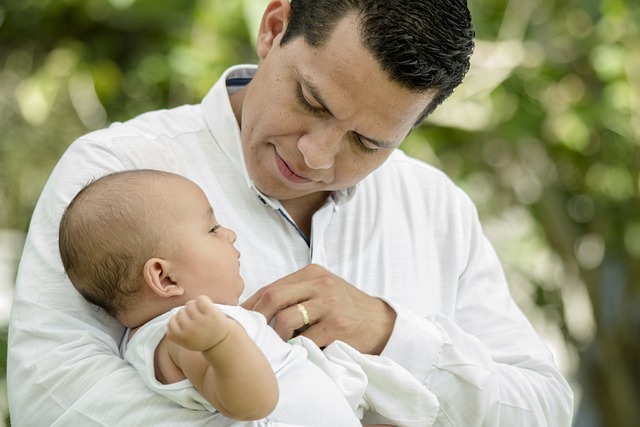Oregon divorce law offers a structured approach to ending marriages, prioritizing fairness and children's well-being. Community property laws ensure asset division transparency, while child support calculations consider parental earning abilities and children's needs. An Oregon divorce guide is essential for navigating legalities, ensuring compliance, and providing clarity during the process. Legal assistance is vital for understanding rights and options regarding support during divorce, including child support and spousal maintenance.
“Navigating the complex landscape of Oregon divorce and support can be challenging. This comprehensive guide provides an in-depth look at Oregon’s divorce laws, focusing on asset division, financial obligations, and, most importantly, child support calculations. Whether you’re looking to understand custody arrangements or considering your legal options, this article offers valuable insights into every aspect of a smooth divorce process tailored to Oregon’s unique legalities. Dive into our Oregon divorce guide for a clear path forward.”
- Understanding Oregon Divorce Law: A Comprehensive Overview
- The Process of Dividing Assets and Debts in Oregon
- Child Support in Oregon: Calculations and Obligations
- Navigating Custody and Parenting Time During a Divorce
- Seeking Legal Assistance: Your Rights and Options in Oregon Divorce
Understanding Oregon Divorce Law: A Comprehensive Overview

Oregon divorce law outlines a clear process for couples seeking to end their marriage, with a strong focus on ensuring fairness and the best interests of any children involved. When it comes to divorce and support, Oregon offers a comprehensive guide that covers various aspects, including property division, spousal support, and, significantly, child support during and after the divorce process.
Understanding these legalities is crucial for those navigating an Oregon divorce. Support in divorce can take many forms, from financial contributions to shared parenting responsibilities. The state’s guidelines for child support divorce are designed to provide a stable and secure environment for children, with calculations based on factors like income, time spent with each parent, and the needs of the child. An Oregon divorce guide should be consulted to ensure all legal requirements are met, offering clarity and peace of mind during an otherwise challenging period.
The Process of Dividing Assets and Debts in Oregon

When a couple in Oregon decides to part ways, the state’s divorce law outlines a structured process for dividing assets and debts fairly. Unlike some other states, Oregon follows a community property system, meaning all marital property acquired during the marriage is considered joint property, regardless of whose name it’s held under. During a divorce, this property is divided equally between the spouses, unless an agreement stipulates otherwise. This includes not just tangible assets like houses and cars but also intangible ones like retirement accounts, investments, and debts.
The Oregon divorce guide emphasizes transparency and fairness in this process. Both parties are required to disclose their full financial picture, including income, bank statements, and debt obligations. A judge will then review these disclosures and make a decision on the division of assets and debts based on what is considered just and equitable. In cases involving child support divorce, the court will also consider the best interests of the children when determining how to allocate resources. This comprehensive approach ensures that both spouses are supported during this challenging time while aiming for a fair resolution.
Child Support in Oregon: Calculations and Obligations

In Oregon, child support calculations are determined by considering various factors, primarily focusing on the needs of the children and the ability of each parent to contribute. The state utilizes a formula that takes into account each parent’s income, the number of children involved, and specific expenses related to their care. Both parents have a legal obligation to support their children financially after a divorce or separation. Oregon divorce law aims to ensure children receive fair and adequate financial provision from both parents, promoting their well-being and stability during and after the divorce process.
The state’s Division of Child Support offers a comprehensive Oregon divorce guide, which outlines the rights and responsibilities of parents regarding child support. This guide emphasizes that support during divorce should be structured to meet the children’s needs, ensuring they maintain a reasonable standard of living. The obligations are not merely financial; it also involves sharing health insurance, medical decisions, and other significant aspects of parenting.
Navigating Custody and Parenting Time During a Divorce

Navigating custody and parenting time during a divorce can be an emotional and complex process under Oregon divorce law. The primary goal is to determine what arrangement is in the best interest of the child, ensuring they maintain a stable and loving environment despite the separation of their parents. This often involves creating a detailed parenting plan that outlines when each parent will have custody and how decisions regarding the child’s care will be made.
Oregon divorce guide recommends open communication between parents to reach an agreement amicably. If a consensus cannot be reached, the court will step in to make these decisions based on factors like each parent’s financial stability, employment schedules, and the child’s needs. It is crucial for parents to understand their rights and obligations regarding support during divorce, as these can significantly impact the parenting time and overall well-being of the child.
Seeking Legal Assistance: Your Rights and Options in Oregon Divorce

When navigating a divorce in Oregon, seeking legal assistance is crucial for understanding your rights and options under the state’s divorce law. Oregon divorce guides suggest that every situation is unique, so consulting with an experienced family law attorney is essential. They can help clarify complex issues related to support during divorce, including child support divorce proceedings and potential spousal support.
Knowing your rights is a cornerstone of the process. An attorney can ensure you’re aware of the state’s guidelines for support in divorce, which consider factors like income disparities, the needs of any children involved, and the length of the marriage. This knowledge empowers you to make informed decisions throughout the divorce and support negotiations, ensuring a fair outcome according to Oregon divorce law.
